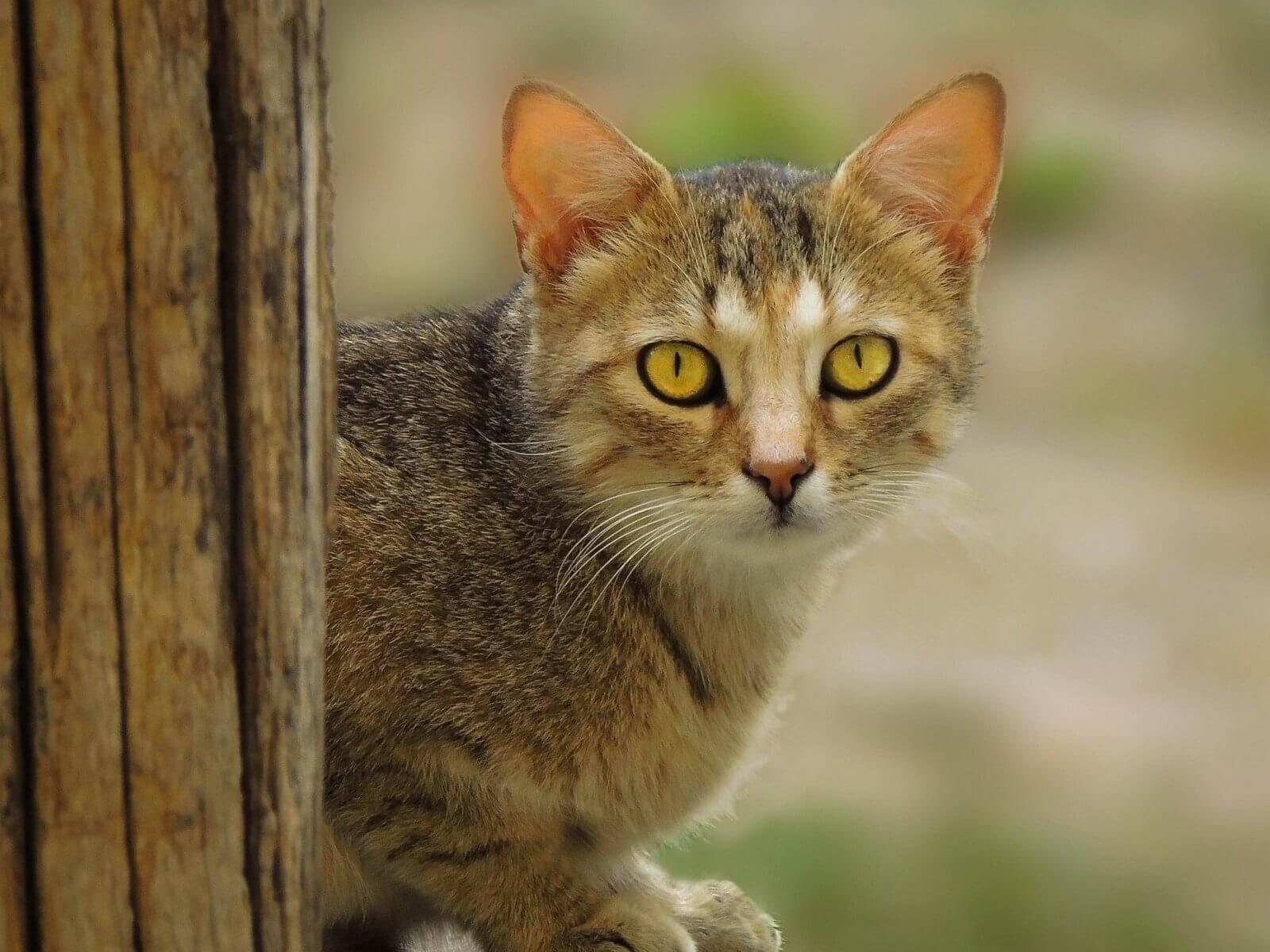Digestive tract disorders are not uncommon in pets. The causes and effects are varied, however, as the gastrointestinal system of the four-legged companions reacts with different sensitivity. For example, if your cat has diarrhea, there are several possible causes. In addition to classic malaise, this can also be an indication of a more serious illness. In the following, you will find out what possible triggers and which symptoms are typical for the clinical picture.
Diarrhea in Cats
- If diarrhea persists (over 24 hours), you should see a veterinarian.
- The clinical picture can have harmless causes, but it is also conceivable that it is a harbinger of a worse illness.
- Both the manner in which your cat has defecated and the texture of the stool are decisive for the treatment.
- Cat owners can use small home remedies to cure mild diarrhea.
The Cat Has Diarrhea

You can feel very quickly when something is wrong with your little house tiger. With some symptoms, however, this cannot be denied optically. This includes diarrhea in cats. If the animals suffer from diarrhea, this can have different causes depending on the amount, color, and texture of the feces. It is therefore important to pay attention to how the velvet paw behaves during the illness. An example: your cat has diarrhea but is otherwise fit. Then there is probably a slight discomfort. The same applies to the following: The cat has diarrhea, but eats normally without vomiting. If the irregular or different manure discharge lasts longer than 24 hours, you should take the cat to the vet!
In addition to these “harmless” causes, it is also conceivable that diarrhea is a sign of a much more serious illness. An example: the cat has diarrhea and vomiting. In such cases, a visit to the veterinary is inevitable. The situation is similar in the following scenario: the cat has diarrhea and meows. This can be a signal that the little darling is in pain when they pass their stool.
In principle, diarrhea in tomcats and kittens is an unmistakable sign that pets get rid of harmful substances quickly. A thin stool is therefore sometimes simply the result of a sensitive cat’s stomach that reacts to a change in food or food intolerance.
Possible triggers for digestive problems and discomfort
Find the cause of diarrhea! In the following table, you will find various factors that contribute to the fact that the velvet paw has diarrhea. Divided into feed, disease, and external factors, you get a comprehensive overview.
Feed Factors
Spoiled, unsuitable, or incompatible food leads to diarrhea in cats.
Switching from one type of food to another too quickly can also be a cause of diarrhea.
If the cat eats foods that contain milk, sugar, or starch, the result is impaired digestion.
If the house tiger has devoured a mouse or other small animal, this has a negative effect on digestion.
Disease Factors
Inflammation of the pancreas has a laxative effect in cats.
If the intestine has an infection or irritation, then diarrhea is to be expected in any case.
If your cat has an overactive thyroid, diarrhea is possible as a result. Hormones play a crucial role in this.
Mental illnesses such as stress also trigger such illnesses.
External Influencing Factors
Often swallowed foreign bodies are one of the triggers of diarrhea.
Worms, parasites, and giardia are often to blame for a diseased gastrointestinal tract. Giardia in particular settle in the small and large intestines.
Just like us humans, viruses and bacteria can also cause severe diarrhea in house cats.
Unfortunately, it also happens that the moaning four-legged friend eats something that is lying around openly in the apartment. Detergents and plants are popular.
Another trigger is humans. Unfortunately, there are always reports of animals dying from poison-soaked bait after a short illness. These supposed treats are placed wherever there are many pets such as dogs and cats. If you are out and about with your animal, then watch out for such baits. Remove this for the safety of your darling and all other four-legged friends. If poisoning does occur, you can find out from the German Animal Welfare Association what initial measures you should take.
Cat has diarrhea: the color, texture, and symptoms provide important information
Diarrhea can manifest itself in different ways. The color, texture, and symptoms vary depending on the disease and trigger. The chair is easily recognizable when the pet is using a litter box. However, it can also happen that they cannot hold the feces. Your cat has diarrhea and goes into the home instead of using the litter box, which is not uncommon for digestive problems.
The following factors provide information about the type of diarrhea:
- Color: As a rule, the manure is either a little lighter or darker than normal. If there are extreme changes in color, you should consult a doctor immediately.
- Condition: Basically, all deviating shapes are cause for concern. Whether watery, mushy or very thin – the cat has diarrhea and should be observed.
- Symptoms: In addition to diarrhea, some pets also have other symptoms. Cats can experience fever, nausea, loss of appetite, tiredness, and lethargy combined with diarrhea. Blood in the feces is also possible and almost always indicates a more serious illness. The cat vomits often in combination with diarrhea. In such cases, the whole digestive system is probably disturbed.
Most often, however, it is like this: the cat has diarrhea and it smells unpleasant. The smell is stronger than with normal droppings. He’s sometimes putrid and sometimes even hot. However, sweet odor notes cannot be ruled out. If there are any foreign bodies in the feces or if you recognize undigested food or parasites, you have usually already found the trigger.
A nursing cat has diarrhea and the kittens are very small. Then it is very important that the little ones are no longer nourished by the mother animal. Otherwise, they could take over the disease, dry out internally and in the worst case die.
Signs that the cat is in pain
- Noises before and during the throwing up
- Interruptions when defecating and leaving the litter box hectically
- The rubbing of the rump on the floor
- Sudden defecation is another sign of diarrhea that is painful at the same time.
- If there are unexpected taboo areas when caressing, such as the lower abdomen, this should be investigated immediately.
The Cat Has Diarrhea: Combine Home Remedies and a Visit to the Vet
These tips help to prevent dehydration, mineral deficiency or high weight loss in the course of a disruption of the digestive tract:
- Your cat has diarrhea and there are home remedies that will help very well. For example, healing earth detoxifies the intestinal tract and binds stomach acid. Ground American elm bark is like a protective layer that covers the stomach and intestinal walls. This allows the entire digestive system to recover some of the irritation. Use these in consultation with your veterinarian.
- If diarrhea lasts longer than a day, only the way to a professional will help. When visiting the vet, it is best to take a sample of your cuddly tiger’s altered stool with you for examination.
- If the cat has diarrhea, you should feed them dry food, or even better, light food. This easily digestible food helps to feed your little darling back to health as quickly as possible.

